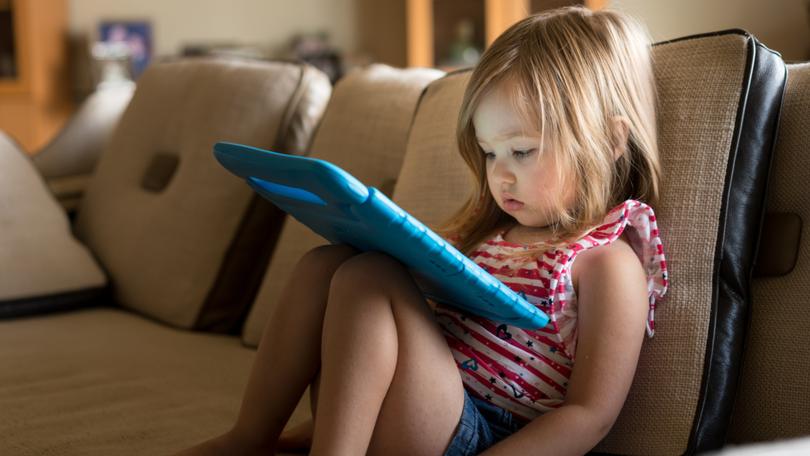Kate Emery: Is screen time as bad for kids as we think it is? Maybe not.
Screen time is bad for kids (except when it’s not). Doing the maths on the pros and cons of screen time for kids turns every parent into Russell Crowe in A Beautiful Mind.

Screen time is bad for kids. (Except when it’s not.)
Video games make young people lazy and violent. (But educational games can boost a kid’s numeracy.)
Watching TV exposes children to junk food advertising. (But watching TV with their parents can improve a child’s literacy.)
Sign up to The Nightly's newsletters.
Get the first look at the digital newspaper, curated daily stories and breaking headlines delivered to your inbox.
By continuing you agree to our Terms and Privacy Policy.Going on social media makes kids depressed. (Actually, there’s not really an upside to letting kids use social media. Sorry.)
Doing the maths on the pros and cons of screen time for kids turns every parent into Russell Crowe in A Beautiful Mind.
Except instead of trying to thwart a Soviet plot using cryptography, parents are forced to crunch the numbers on whether one more episode of Danny Go on YouTube will doom their child to future incarceration or merely a lifetime of morbid obesity. Like Crowe’s character, they also wind up utterly insane.
A study published in Nature Human Behaviour this week, therefore, is the cooling balm all parents need to read. Or at least they should read it, if only they had the time while also washing permanent marker out of school uniforms, pretending to understand long division to help with homework and cooking a dinner that won’t trigger a revolt.
Because its conclusion is — I’m oversimplifying but not by much — that a) weighing the pros and cons of screen time is really hard and b) the evidence for what’s good and bad isn’t as clear cut as you think.
The work was done by researchers from the universities of NSW, Queensland, Sydney, Southern Queensland, Deakin University, Macquarie University and the Australian Catholic University.
In general, where effects did exist they were often quite small.
They looked at a bunch of meta-analyses — essentially reviews of multiple scientific studies — on the effects of screen use by children and young people and concluded that screen time guidelines in Australia were likely too simplistic, mischaracterise the strength of evidence or do not acknowledge the nuance involved.
The researchers wrote: “Our findings suggest that screen use is a complex issue, with associations based not just on duration and device type but also on the content and the environment in which the exposure occurs . . . Given our results, we support the continuing trend of guidelines moving away from recommendations to reduce screen use and instead focus on the type of screen use.”
To get specific they found that being exposed to junk food ads via TV or in-video-game promotions led kids to eat more unhealthy food, that TV viewing disturbs sleep — especially in adolescents — and that both watching TV and playing video games can affect body composition. They also found evidence that watching TV can lead to poorer academic performance and literacy skills for kids.
In general, where effects did exist they were often quite small.
More interestingly, they also found that, if the TV show was educational or parents were watching too, TV could boost a child’s literacy. Similarly, video games designed to teach numeracy could do just that.
The good news here is not just that this adds to a growing body of academic work that suggests future guidelines should embrace nuance.
The better news is that parents who beat themselves up for failing to get their heads around exactly how their screen choices are going to mess up their kid can relax. Kind of. They might indeed be messing up their kid — isn’t everyone, except maybe Bluey’s dad Bandit? — but if even the boffins can barely understand how, at least they can stop blaming themselves.
